This Couple Launched A $60 Million Apparel Brand From Their Home
They've been profitable from the start, bootstrapped to millions before raising any money, and now have a team of over 35 generating 8-figures in revenue
.png)
One of the cool things about Hampton is the number of husband/wife co-founders we have in the group. It's great to see couples out there building businesses together, and today's interview will introduce you to one of them.
Matthew and Melissa Parvis are the co-founders of Fresh Clean Threads, a DTC brand focused on high quality everyday essentials.
The business initially launched as Fresh Clean Tees, a subscription box that specialized in men’s t-shirts, and over the years they’ve expanded to include everything from hats to Henleys, socks to sweatpants, and recently added a line of women’s tees too.
They started the company in 2015, and bootstrapped to high-seven-figures before taking a small round of investment led by Guild Capital back in 2020. Since then, the company's grown nearly 10x, ending 2022 with over $60 million in revenue, and taking one of the top spots on WPO's list of fastest-growing female-led companies.
Matthew and Melissa are also two of our most active members, and regularly host happy hours and dinners with other Hampton members in their home base of La Jolla, or while traveling around the country for work.
I got a chance to catch up with them recently and chat about...
- Their backstory, and how they came up with the idea
- How they launched
- Their most effective growth channels
- The "oh sh*t" moments
- Their thoughts on leadership
- Working as a couple
And more...
1. Backstory And How They Came Up With The Idea
Shortly after they were married, Matt and Melissa knew that they wanted to start some kind of hobby business together.
It was 2015, the height of the Dollar Shave Club, and subscription boxes were big. So they began looking for a subscription product they could sell.
“We didn't want to have to reinvent the wheel, or start fresh, or do anything that was too niche – like, you know, hot sauce of the month club,” Melissa said. Instead, they looked for, “something that people needed, wanted, and we had a really big market for.”
Her background was in apparel, including product development and technical design. At the time, she was working with a major screen printing company in Las Vegas that handled merch for several casinos on the strip, along with Disney, The UFC, the Tough Mudder franchise, and more.
Matt was many times a guinea pig for Melissa’s shirt projects, and she used to bring him all sorts of blanks to try on.
Work-wise, his background was in marketing, and he’d spent nearly a decade as chief creative officer for iBus Media, a large affiliate publisher, and also freelance writing for Thrillist.
“I'm not too familiar with where the journey has gone for Thrillist today,” he said. “But [it was] pretty pivotal in that merge of content and commerce for a while... Learning how to talk to guys in their twenties through forties.”
Between their experience in apparel, and marketing to men, it seemed like men’s t-shirts checked all the right boxes, and the idea for Fresh Clean Threads was born.
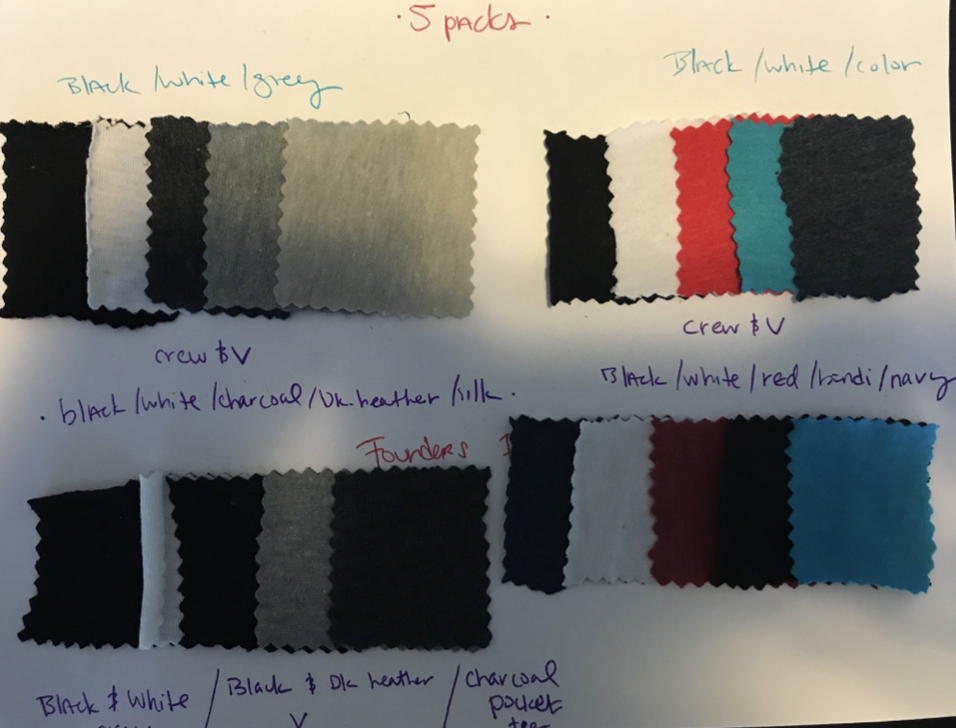
2. How They Launched
While the two had some understanding of the product and target market, neither had ever run a DTC business, and they had to figure out how to get a website up, order product, design packaging, arrange shipping, and more.
“It was a lot of just doing,” Matthew said, talking about how they simply chipped away at each task in front of them as they got the business up and running. That theme – of having the confidence to put one foot in front of the other, even in the face of uncertainty – is one that would come up a lot in our conversation.
They built their first website on Cratejoy, a marketplace for subscription boxes, and planned to launch just ahead of Black Friday, hoping to capitalize on all the holiday traffic – a decision they both laugh about in retrospect, now that they've got several multi-million dollar Black Fridays under their belts.
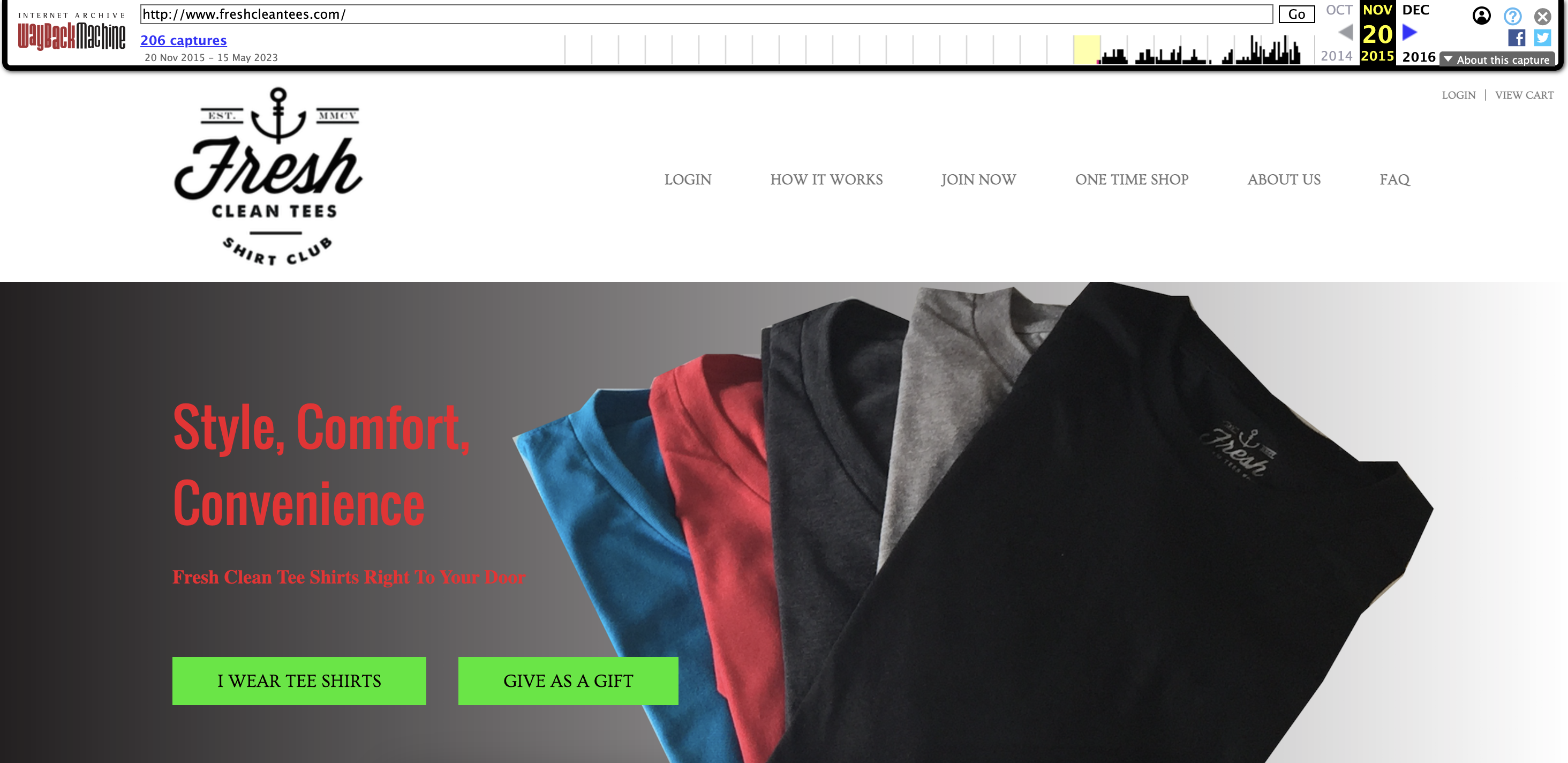
“We turned the site on and sent an email out to our friends and family list and got a few sales there,” Matt said. “And then it was just kind of dark, and it was like, ‘Well, fuck. What do we do now?’”
They were smart to launch on Cratejoy though, because the site’s broader marketplace gave them some early visibility, and within a couple of weeks, they got their first order from a total stranger.
From that point on, it was largely a matter of learning everything they could about Facebook marketing as they searched for their first big win. More on this soon.
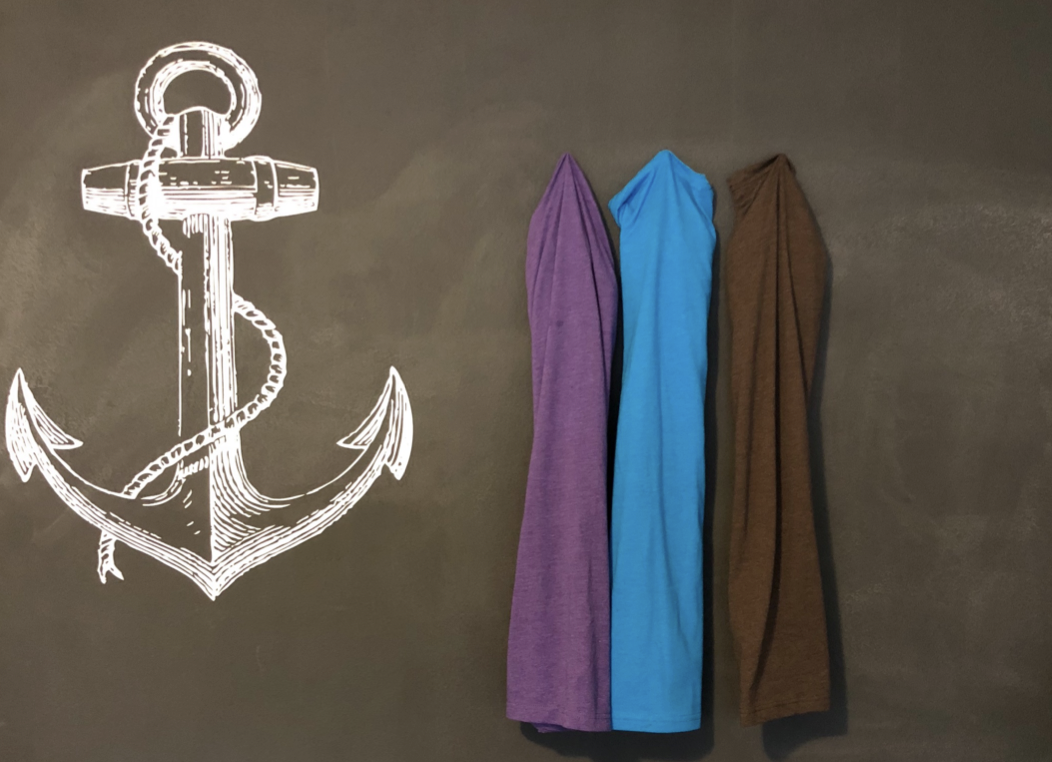
In the beginning, they ran operations out of their home.
In fact, Melissa hand-curated each subscriber’s box every month, right up until they had ~2k or ~3k customers.
“Each month I would make this spreadsheet and be like, ‘This guy got black, white, and green last month, so next month he has to get black, white, purple,” she said. “Don't ask me what I was thinking.”
She wrote hand-written thank-you's to each new customer too, and they packed and labeled hundreds of boxes every few weeks from their spare bedroom, until they finally outgrew the space and started working with 3PL's.
.png?width=960&height=540&name=Article%20Images%20(6).png)
3. Most Effective Growth Channels
While they've recently started experimenting with TV, like many DTC brands, Meta ads are one of their most effective growth levers.
They didn’t necessarily start off that way though. In fact, at first it seemed like ads might sink their business.

“The funniest part was [Cratejoy] had this calculator,” Matt said. “It was like a ‘Getting Your Business Started’ calculator.” They’d used it early on to assess different products and decide whether they could build a viable business. “It would just pre-plug certain numbers in there, so I was assuming these are, you know, fairly accurate,” he said.
The calculator came pre-filled with an $8 CPA, and at those rates, the t-shirt business looked very strong indeed. But when their ads first kicked off, they were seeing CPA's closer to 10x that.
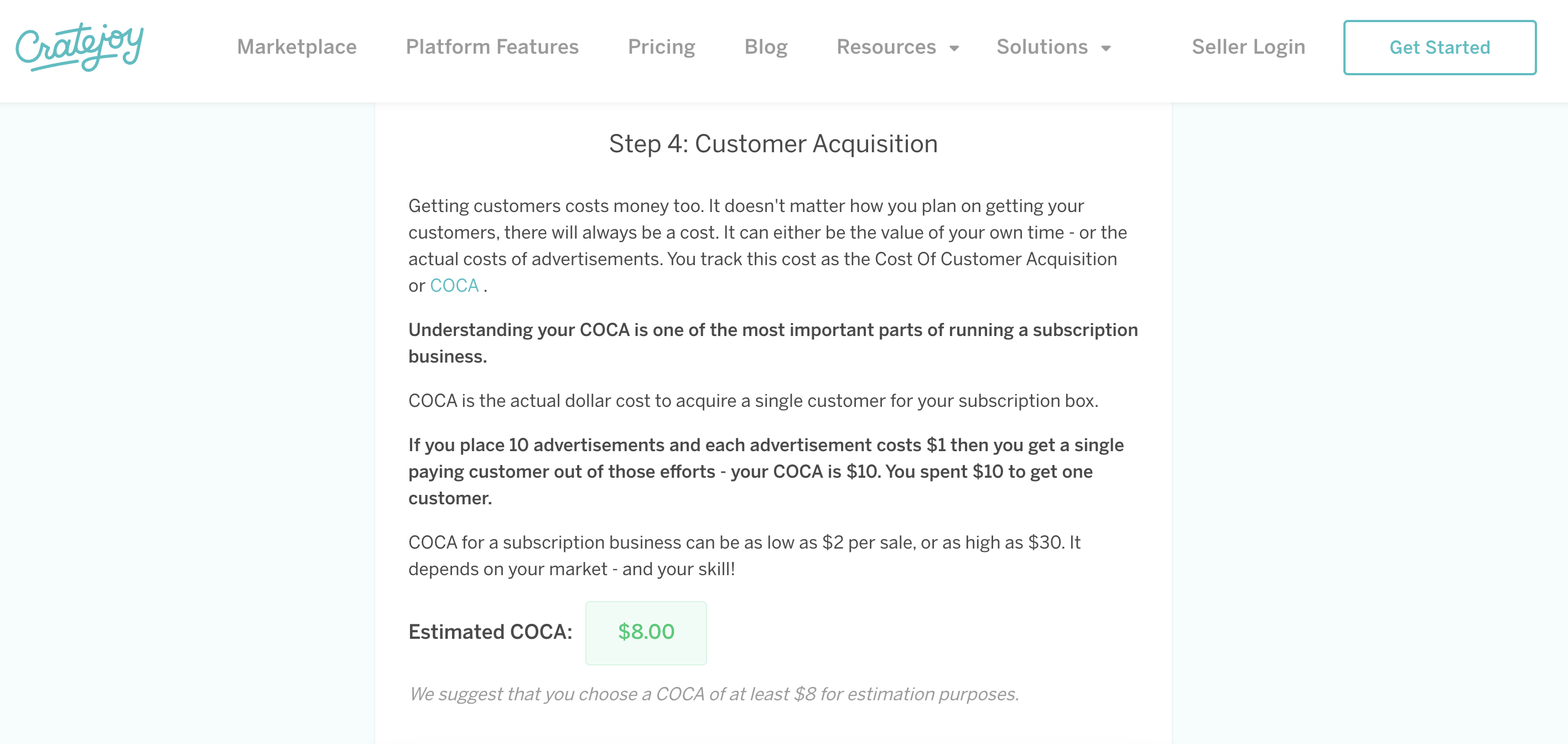
“I don't think that we thought as sophisticated as we do now,” Matt said. They hadn't been around long enough to understand or even ask about the contribution margins of individual products, payback periods, or LTV.
“[Instead] it was kind of like, ‘We're selling a $36 product and it's costing me almost a hundred dollars to get a new customer. We're gonna lose a shit ton of money here,’” he said.
Then two things happened at the same time that changed their business forever
First was that a friend pushed them to invest more in their own advertising. At the time, they were spending just a few hundred dollars on Facebook, and he urged them to decide whether they really believed in the business, and if so, to take a bigger bet on themselves.
The second was that they got enough customers to start building look-alike audiences on Facebook.
They ramped up ad-spend from a couple hundred dollars to $1k or more, which accelerated their learning curve.
Not only did they start to see their CPA’s come down to a much more reasonable $40 or $50, but they also kicked off one of their biggest early growth jumps, taking the company from $100k in 2016 to around $500k in 2017.
Within six months of the increased testing, CPA’s were down to $17-$25, and for the first time, it felt like the business was really working.
“I wish that I actually knew how well it was working a little earlier,” Matt laughed. “We could have scaled so much faster.”
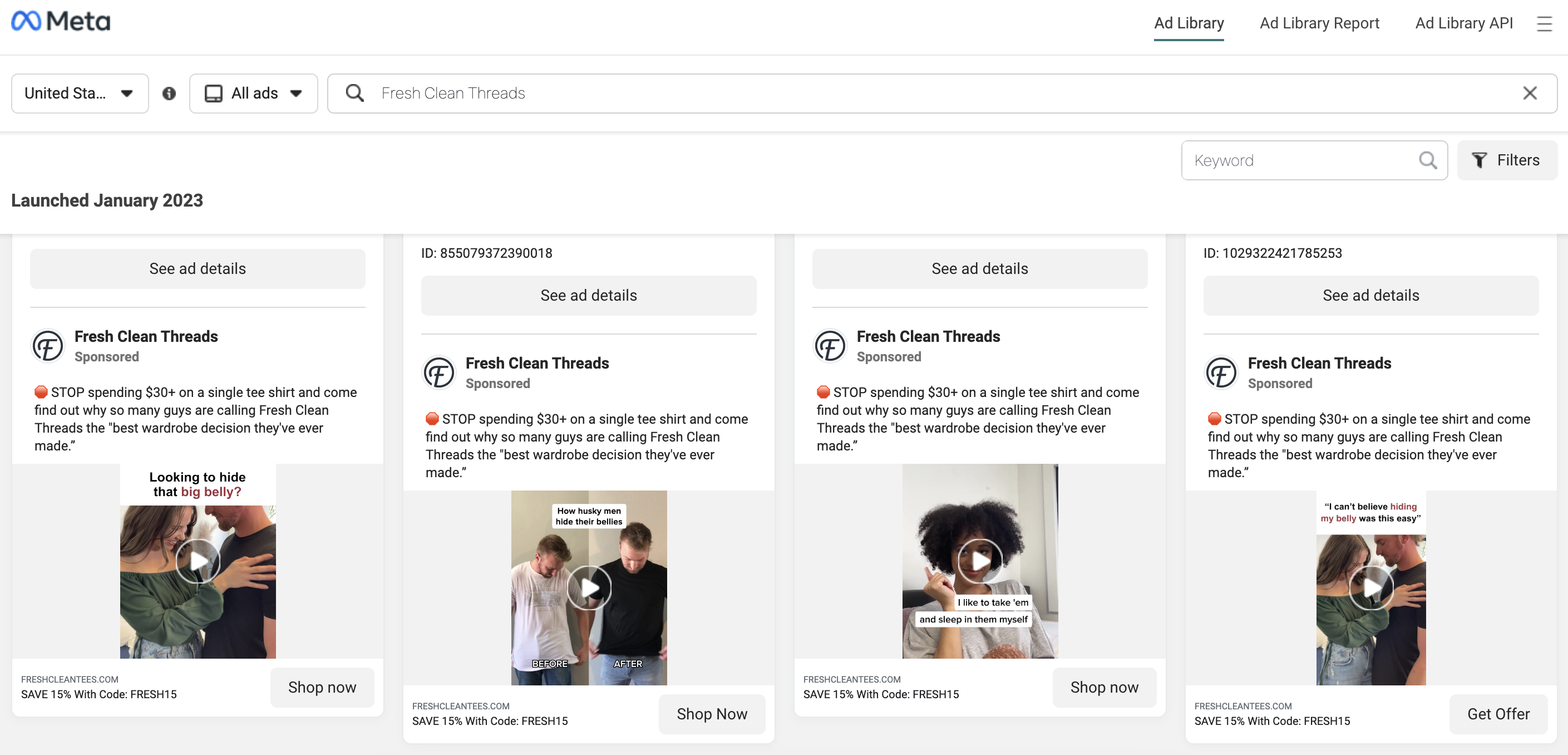
Another early win came from an ad they shot with Rob Rast, a local Youtuber that Melissa spotted back in 2019.
"He would run around Pacific Beach doing crazy stuff," she said. "He came in one day and we gave him a bunch of shirts."
Rast filmed this video in a local park and it went absolutely viral, racking up over 4 million views on Facebook alone, and another 1.8 million on Youtube.
As with many viral moments, the precise reasons for the video's popularity were never perfectly clear. But people wrote in to Fresh Clean Tees, asking if they could buy Rob's worn shirts, and the views just kept on coming.
"We had an ad agency that we worked with at the time that said, 'I've never seen anything like this one ad,'" Matthew recounted. "I would say that ad has made us $15 to $20 million dollars."
Another time, they saw Seth Rogen asking for T-shirt recommendations on Twitter. So they photoshopped his head onto one of their models and shared it in the replies, encouraging him to check them out.
Apparently, they used this same tactic on our co-founder, Sam Parr.
Seth didn't reply, but our guy Sam did, and the relationship later led them to Hampton, which just goes to show that you never quite know what your marketing efforts will bring.
“Hey, you gotta like, do things, right?” Matt said. “You have to be able to take some risk and just do things in order to be successful.”

4. Tell Us About The “Oh Sh*t” Moments
Obviously, when you build a company this big, that's been around this long, there are plenty of crises and narrow escapes.
“I find them to be mostly fulfillment-related because I think it's the hardest,” Matthew said. “When you're good at marketing or you're good at product, it's that ops stuff that’s always the nitty gritty that you’ve really gotta learn.”
For example, at one point they’d outgrown their home office and decided to move fulfillment to a boutique local 3PL. When they did, they realized their existing systems weren't ready for the switch, and it almost broke the business.
“We had no barcodes, we had no poly bags, nothing,” Matt said.
“We brought these shirts the same way I used to ship them,” Melissa added. “I remember meeting with [the 3PL] and him saying, 'You're not gonna be able to scale this business the way you're doing things.'”
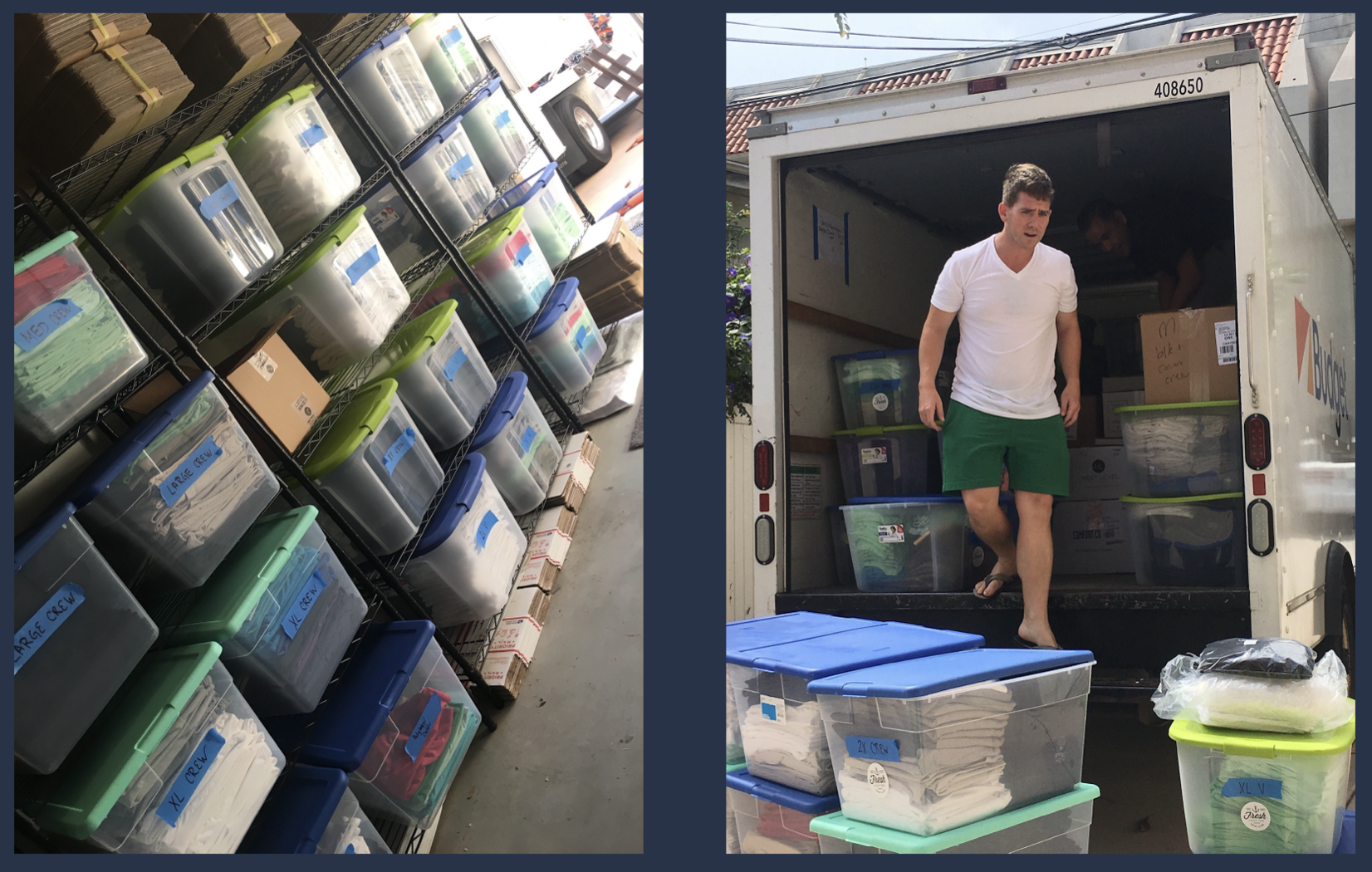 Another time, when they switched the site from Cratejoy to Shopify, they weren’t able to bring transfer all their customer's payment info, which was a huge potential problem to a company built on recurring subscription memberships.
Another time, when they switched the site from Cratejoy to Shopify, they weren’t able to bring transfer all their customer's payment info, which was a huge potential problem to a company built on recurring subscription memberships.
Every website upgrade. Every warehouse change. Every time, it seemed like the business would break, but they always found a way through.
“It's all been like, a series of fantastical moments paired with this [feeling] like it's all gonna come down and crumble in front of us, which is still like the way that I feel,” Matt laughed.
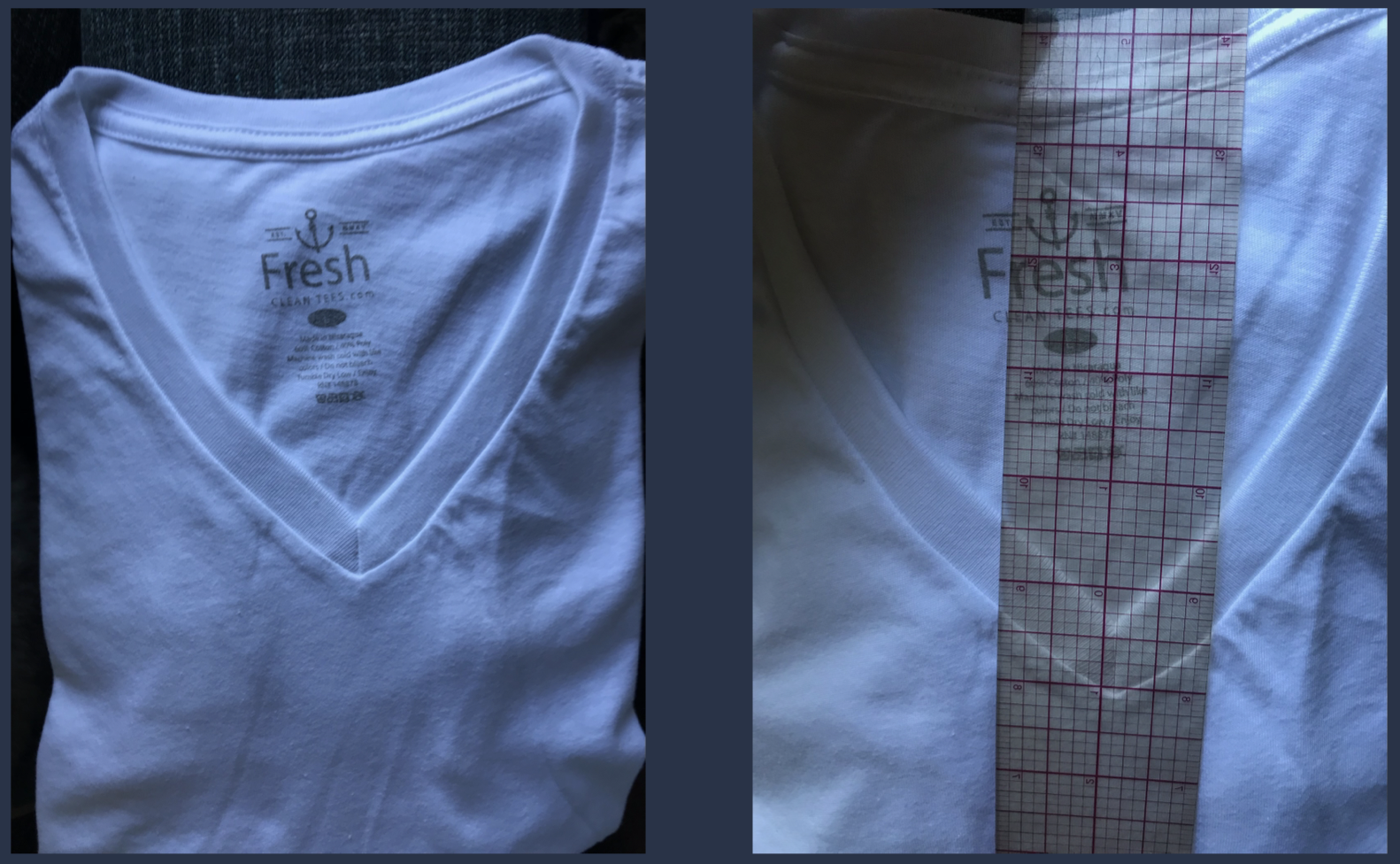
But perhaps their biggest challenge came in March of 2020. The two had recently bought a new home, Melissa was six months pregnant with their son, and they were just about to close their funding round when lockdowns struck, throwing the global supply chain, and investors, into uncertainty.
The funding went on-hold as the world watched to see what would happen next.
That might kill any business, but to compound the issue, in the excitement around the fund raise and in preparation to scale, they’d already ordered far more inventory than usual. Now, warehouses weren’t even sure if they’d be able to stay open.
“I remember sitting in bed next to you,” Melissa said to Matthew during our interview, “Going like, ‘Oh fuck. What is happening?’”
But they got through that too though. Stimulus checks went out, warehouses and 3PLs found a way to stay open, and investors came back quickly once they saw the brand was thriving through the pandemic rather than struggling.
The relationship with their investor unlocked new growth opportunities for them too, and they finished 2020 with $20 million in revenue, a 4x growth over the year before.
5. Thoughts On Leadership
One thing that stands out about both Matthew and Melissa when you talk to them is that they’ve got a very even keel for a couple running such a large company. I asked them about how the challenges they've faced have moulded their approach to leadership.
“Well, I think there’s three things that are important in leadership,” Melissa said. Those include…
- Clarity: Always trying to be clear with your thoughts and what you expect of your team.
- Transparency: “I think we're probably overly transparent,” she said. “But we're always open and honest about what's going on in the business as much as possible.”
- Try to have fun with your team: “You know,” she said, smiling, “It’s t-shirts. Not rocket science.”
As for Matthew, he says that their ability to lead comes down to their willingness to get their hands dirty.
“Melissa and I have been capable of keeping our heads on straight because, in one way or the other, we have done every single job in this business and anything we're asking people to do, we've done ourselves,” he said.
“We're a super data driven organization today,” he added. “We have a lot of the smartest people in the world, and at first you get really intimidated by hiring really, really smart people until you realize that what really great founders have that some of the smartest people in the world don't have is like a gut instinct that you trust, and the ability to trust your gut and move forward in the face of a lot of challenge and a lot of chaos.”
6. Working As A Couple
Speaking of chaos, I also asked about how they’ve managed to make it work as a co-founder couple for so long, and whether they have any rules or habits that keep the company from interfering in their relationship.
“We're a team first,” Matthew said. “Like, the two of us against the world – that’s the mindset that we take with everything.”
“We like each other,” Melissa added. “We like to travel together, we like to do stuff together. That's kind of one thing that prompted [the business] is he used to travel a lot for work and I'd be stuck home at an office and I was like, 'This is not working for me,'" she laughed.
Now they’ve been married more than nine years, running a business together for nearly eight, and have almost forgotten what it was like to lead separate work lives.
They don't have many rules. But the one thing they pay close attention to is boundaries, and recognizing when one of them needs a break from work-mode.
“This is not a normal relationship in that you come home, and you talk about work, and you're venting to get it off your chest,” Matt said. “We're in a deep strategy session like 99% of the time, and sometimes one of us needs a breather from that, and like the other just says like, ‘Hey, let's turn it off for like an hour.’”
Where To Go To Learn More
- Fresh Clean Threads Website
- Fresh Clean Threads Instagram
- Melissa’s Personal Twitter
- Matthew’s Personal Twitter
Personally, I find being the CEO of a startup to be downright exhilarating. But, as I'm sure you well know, it can also be a bit lonely and stressful at times, too.
Because, let's be honest, if you're the kind of person with the guts to actually launch and run a startup, then you can bet everyone will always be asking you a thousand questions, expecting you to have all the right answers -- all the time.
And that's okay! Navigating this kind of pressure is the job.
But what about all the difficult questions that you have as you reach each new level of growth and success? For tax questions, you have an accountant. For legal, your attorney. And for tech. your dev team.
This is where Hampton comes in.
Hampton's a private and highly vetted network for high-growth founders and CEOs.

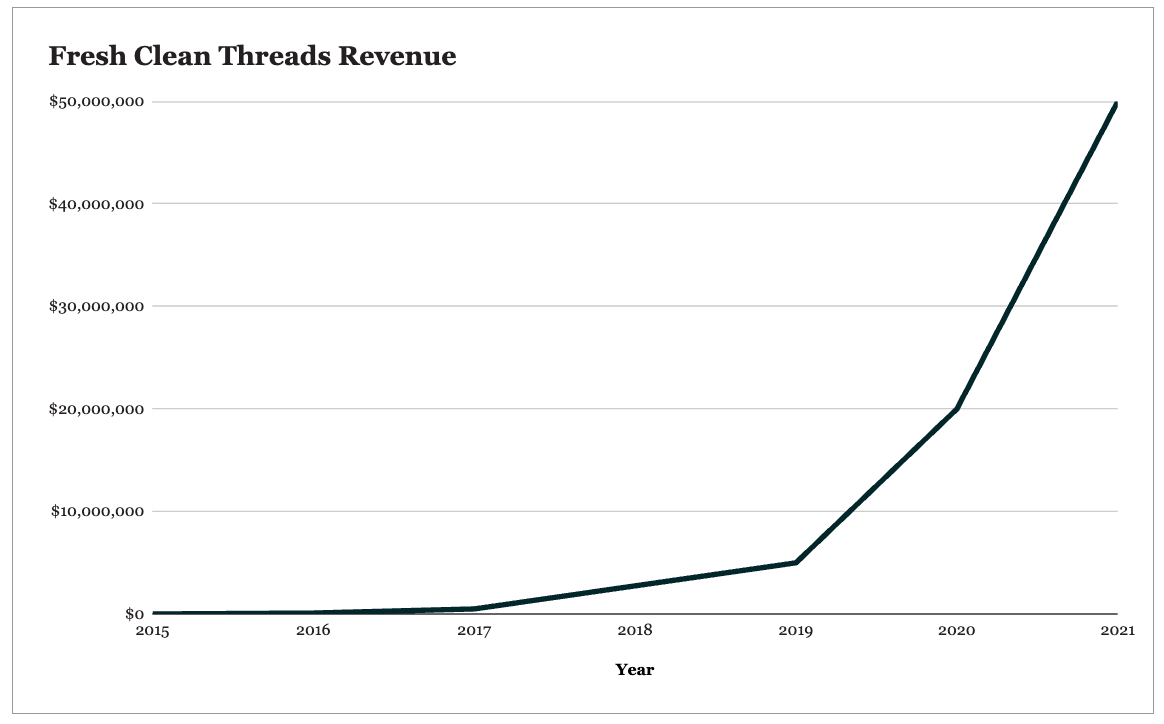
.png?width=352&name=Blog%20Featured%20Image%20(14).png)


